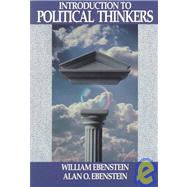| Preface | iii | ||||
|
1 | (63) | |||
|
13 | (51) | |||
|
13 | (3) | |||
|
16 | (4) | |||
|
20 | (3) | |||
|
23 | (1) | |||
|
24 | (2) | |||
|
26 | (2) | |||
|
28 | (4) | |||
|
32 | (5) | |||
|
37 | (5) | |||
|
42 | (2) | |||
|
44 | (4) | |||
|
48 | (6) | |||
|
54 | (2) | |||
|
56 | (4) | |||
|
60 | (4) | |||
|
64 | (46) | |||
|
75 | (35) | |||
|
75 | (2) | |||
|
77 | (2) | |||
|
79 | (1) | |||
|
80 | (5) | |||
|
85 | (8) | |||
|
93 | (1) | |||
|
94 | (4) | |||
|
98 | (1) | |||
|
99 | (1) | |||
|
100 | (2) | |||
|
102 | (1) | |||
|
103 | (1) | |||
|
104 | (2) | |||
|
106 | (1) | |||
|
107 | (3) | |||
|
110 | (20) | |||
|
116 | (14) | |||
|
116 | (1) | |||
|
116 | (1) | |||
|
117 | (1) | |||
|
117 | (1) | |||
|
118 | (1) | |||
|
119 | (1) | |||
|
120 | (1) | |||
|
120 | (1) | |||
|
121 | (1) | |||
|
122 | (2) | |||
|
124 | (2) | |||
|
126 | (1) | |||
|
127 | (1) | |||
|
128 | (1) | |||
|
128 | (2) | |||
|
130 | (29) | |||
|
143 | (8) | |||
|
143 | (2) | |||
|
145 | (1) | |||
|
146 | (2) | |||
|
148 | (3) | |||
|
151 | (8) | |||
|
151 | (1) | |||
|
152 | (1) | |||
|
153 | (1) | |||
|
153 | (1) | |||
|
154 | (1) | |||
|
155 | (2) | |||
|
157 | (1) | |||
|
158 | (1) | |||
|
159 | (21) | |||
|
168 | (12) | |||
|
168 | (1) | |||
|
169 | (1) | |||
|
170 | (1) | |||
|
171 | (1) | |||
|
172 | (2) | |||
|
174 | (1) | |||
|
175 | (2) | |||
|
177 | (3) | |||
|
180 | (28) | |||
|
190 | (18) | |||
|
190 | (2) | |||
|
192 | (2) | |||
|
194 | (2) | |||
|
196 | (3) | |||
|
199 | (3) | |||
|
202 | (2) | |||
|
204 | (4) | |||
|
208 | (30) | |||
|
218 | (20) | |||
|
218 | (4) | |||
|
222 | (1) | |||
|
223 | (1) | |||
|
224 | (3) | |||
|
227 | (2) | |||
|
229 | (1) | |||
|
230 | (3) | |||
|
233 | (5) | |||
|
238 | (35) | |||
|
250 | (23) | |||
|
250 | (1) | |||
|
250 | (1) | |||
|
251 | (2) | |||
|
253 | (1) | |||
|
253 | (2) | |||
|
255 | (1) | |||
|
256 | (1) | |||
|
256 | (1) | |||
|
257 | (1) | |||
|
258 | (1) | |||
|
259 | (2) | |||
|
261 | (1) | |||
|
262 | (2) | |||
|
264 | (1) | |||
|
265 | (3) | |||
|
268 | (1) | |||
|
269 | (2) | |||
|
271 | (2) | |||
|
273 | (35) | |||
|
282 | (26) | |||
|
282 | (4) | |||
|
286 | (22) | |||
|
308 | (32) | |||
|
321 | (19) | |||
|
321 | (7) | |||
|
328 | (5) | |||
|
333 | (6) | |||
|
339 | (1) | |||
|
340 | (23) | |||
|
347 | (16) | |||
|
347 | (1) | |||
|
348 | (1) | |||
|
348 | (3) | |||
|
351 | (1) | |||
|
352 | (2) | |||
|
354 | (2) | |||
|
356 | (1) | |||
|
357 | (2) | |||
|
359 | (4) | |||
| For Further Reading | 363 | (6) | |||
| Index | 369 |









